The Rudimental Breakbeat: How Does it Work?
The Rudimental breakbeat can be heard in so many of their collaborations. But, how does it work, and why is it such a good groove? Let’s take a closer look at this 2010s staple.
Rudimental Breakbeat:
Who Are Rudimental?
Formed in 2009, Rudimental are a drum and bass band from London, England. Consisting of three members, Piers Aggett, Kesi Dryden and Leon Rolle, they have collaborated with plenty of household names and topped the charts just as many times.
Names such as Emeli Sande, John Newman and Ella Eyre are just a few of the artists that they’ve worked with. And, because nothing beats a Jet 2 holiday, they’ve even worked with Jess Glynne.
They’re not a rock n’ roll group, and some of their stuff isn’t to everyone’s taste. However, there’s no denying the addictive nature of their signature Rudimental Breakbeat. Here, we’ll be seeing what exactly makes it so good, along with some key examples.
Style
Essentially, the overall style of the breakbeat is drum and bass, otherwise known as DnB. It combines traditional drum rudiments such as flams, rolls and paradiddles, but adds a little bit of extra hip hop flare.
Although digital, it brings live energy to the radio waves. It feels humanly expressive and mechanically sharp. The precision is immense.
It is a fusion of disciplined, technical drumming and raw, groove-heavy rhythms. Later on, we’ll look at some examples. However, regardless of the song, this groove elevates the track for the better and turns it into an instant chart topping success.
Tempo
So, let’s get a bit more technically precise about this Rudimental breakbeat. This beat is always in a 4/4 time signature, whereby we have four beats to a single bar. Of course, this can be divided further, and in this case it always is.
The beat is driven by a 16th-note motion, otherwise known as semi-quavers. Combined with a typical tempo of 170bpm-180bpm, this is where we get that energy from. Moreover, the effect of these 16ths provides a swung feel which mimics that organic, flowing feel.

Rhythmic Feel
The overall feel of the Rudimental breakbeat is thanks to some clever drumming techniques. Using paradiddles to create syncopation, we also work with flams. These add ghost notes to the texture. We describe texture as the thickness of a piece of music.
These flams are played on the snare, which is usually played on beats 2 and 4 of the bar. However, these ghost notes slide in just before the offbeat, creating a continuous rolling sound.
Furthermore, the kick drum is playing a traditional role of being placed on beats 1 and 3 of the bar, but occasionally emphasises the ‘&’ of beats 2 or 3, again adding to the thickness of the beat.
Digital Creation
The breakbeat’s tone is essential for cutting through the mix and cutting through the track With regards to the snare, it’s crisp, snappy and layered. To mimic a human touch, there are often different levels of attack on the snare. We refer to this as Velocity Variation, whereby no two hits sound identical.
EQs are key too. Unusually, the mids are raised, which brings the beat a bit further to the front of the mix, rather than being lost against the rest of the track.
The cymbals and hi-hats are always tight, and sometimes have some distortion to emulate the scratching of a vinyl record, or the overdrive of a weak set of speakers. Reverb is used in a very subtle way, to achieve a flat sound. Too much reverb, and all of the techniques and layers would get lost and lose that sense of live energy.
Examples
Okay, it’s time to actually hear the Rudimental breakbeat in action. These are some of my favourite examples, and they still provide the soundtrack to my early teenage years.
John Newman’s vocal line provides a melancholy and almost haunting feel at the start of this track. The synths and organs slowly start to emerge before the magical breakbeat cuts through and delivers that live festival rave that hits you in the face.
Secondly, we have Ed Sheeran’s Bloodstream. The original track was previously released with just guitar and vocals, along with some loops. However, the addition of Rudimental totally transformed the song from a busker’s staple to a house party classic.
My final showcase of the Rudimental breakbeat comes from Waiting All Night. With Ella Eyre on vocals, this track captures the feel of the early 2010s. Aside from being an out-and-out house, drum and bass track, it reached No.1 on the UK Singles chart. Plus, it even peaked at No.5 on the US Billboard Hot 100.
Breakbeat at Home
So, how could you look to recreate the breakbeat at home? Well, *Thomann has some great drum machines on offer that could help with this.
Behringer RD-8 MKII
This has a classic electronic drum characteristic about it. Along with a *64-step sequencer and a whole host of accent possibilities. Great for combining electronic sounds, ideal for our breakbeat.

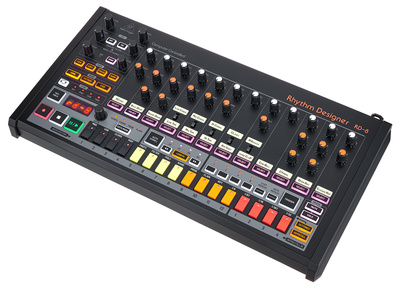
Kork Drumlogue
This offering from *Korg provides modern hybrid samples. Giving flexibility to design custom drum timbres and sequence them exactly as you wish.

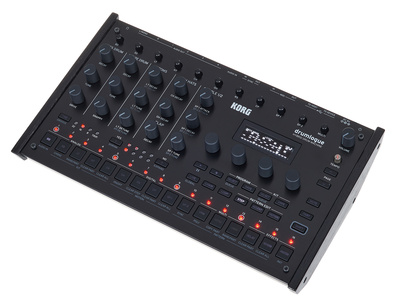
Alesis SR-16
Alternatively, you could opt for the *cheapest offering here. Although it won’t provide you with as many possibilities or precision, it is easy to use and good for creating grooves. Overall, it’s an honest classic sample-based drum machine.


Videos:
Further Information:
*This post contains affiliate links and/or widgets. When you buy a product via our affiliate partner, we receive a small commission that helps support what we do. Don’t worry, you pay the same price. Thanks for your support!
One response to “The Rudimental Breakbeat: How Does it Work?”

 4,2 / 5,0 |
4,2 / 5,0 | 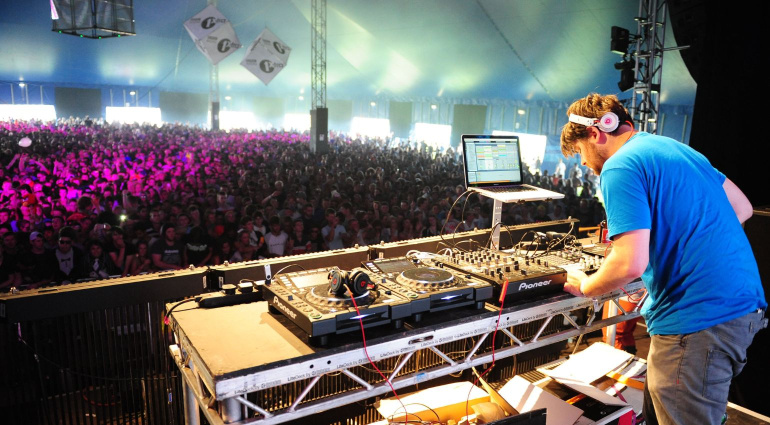


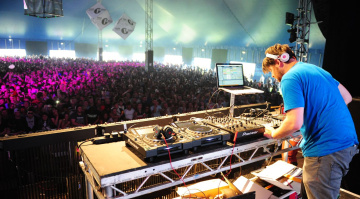

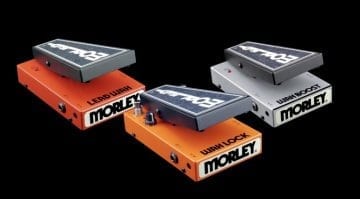
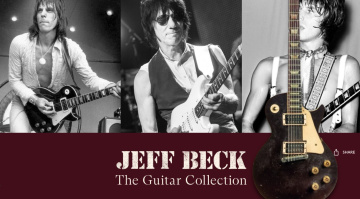
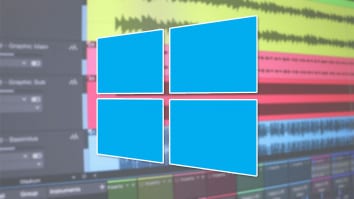


Jungle (originally) was big in 92/93, and became DnB by the mid 90s, with its slower offshoot, Breakbeat running from mid 90s to around 2004. And all of ’em came out of the Amen Break being used on Rave and Hardcore tunes from around 89 to 92. People got bored with Amen samples and started using digital drummers to make their own breaks. While Rudimental’s craft and class in that dept is undoubted, it still sounds old-fashioned to me. They seem to be flogging a dead dance horse now, that has no audience, in the clubs that don’t exist anymore! We’ve even heard people trying to get Speed Garage going again! Gunman! Maybe everybody’s spent a bit too much time trying to perfect the old British genres of the past, and not enough time making the new British genres of the future. And maybe that’s as a result of a country becoming so conservative, that it’s main TV show is about ballroom dancing? We’ll leave you play Cafe Del Mar (again!) and think on it…..